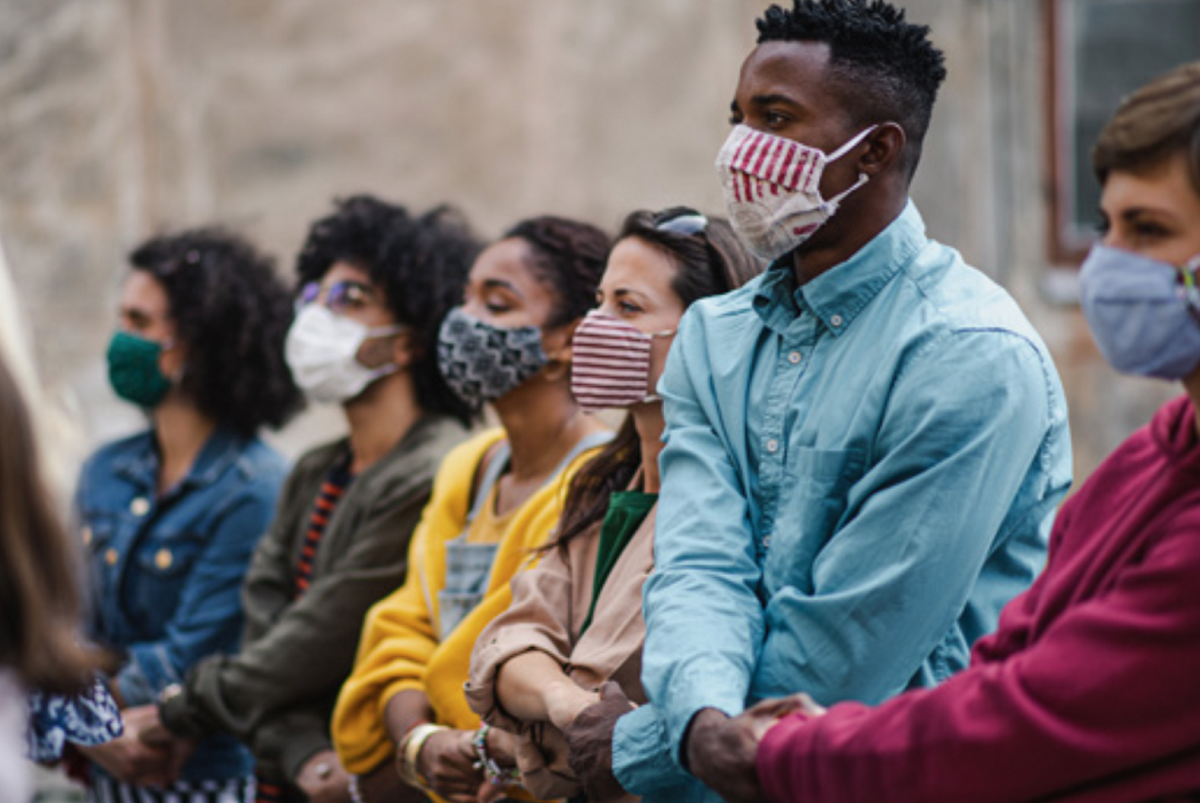Working to create a better world where everyone has access to clean air and water and a habitable climate can be a joyful process. I know I wouldn’t trade the relationships I’ve built with my fellow climate organizers for anything. But let’s be real: It can also take a big toll on your mental health.
The stakes of the climate crisis are so high. Progress, especially during the Trump years, has often felt agonizingly slow. And as you work to turn the tide, climate disasters continue to proliferate, sometimes right in your own backyard.
On top of all that, we’ve lived through a goddamn global pandemic, a deep and painful recession, unprecedented wildfire and hurricane seasons, an attempted coup, and continuing murders of Black Americans by police -- just this past 14 months. So if you’re feeling burned out, depleted, anxious, depressed, or ready to let out a primal scream, you are certainly not alone.
We have to take care of our mental health as we work to end the climate crisis and the white supremacist system it’s rooted in. Otherwise, we won’t be able to show up joyfully and powerfully as we work to dismantle the systems that cause so much harm to our environment and our communities.
That means more than just self-care. Community care and systemic change are equally important -- if not more so. As one Sierra Club staff member put it, “Most of the self-care rituals I've seen are individual practices. I believe humans need community ... And I don't want to self-care myself into coping and adjusting to a bad system.”
To celebrate Mental Health Awareness Month this May, I asked Sierra Club staff to share the tools, practices, and sources of inspiration they use to take care of their mental health while doing the often-difficult work of halting the climate crisis. Here’s what they recommended. Some of their answers have been anonymized to protect their privacy.
Build Community
“Connecting with people, friends, family, and community [is key]. Practicing gratitude in community. Tending my people. I've created a volunteer community where we practice saying regular gratitudes. It's created a community that supports each other, and doesn't depend on me to do so. One advantage is that they've incorporated it into the culture, and they lift ME up when I can't lift anyone else.” -Anonymous
Set Boundaries
“I have tried really hard to set work and life boundaries to help protect my mental health. When I find myself spiraling downward during the workday, I actively dedicate some of my lunch/break time to do something that physically or mentally releases stress, which for me has been yoga sessions or mindful moments of meditation. These practices might not be everyone's cup of tea -- but any practice of breaking away from the work, and participating in a task that quiets your mind and allows you to decompress, can be a big game changer in tackling the mental and physical stress that comes with this work.” -Kristiana F.
Find Inspiration in Movement Victories of the Past
“I know I'm feeling burned out when things that should matter to me don't anymore. It's very easy to feel numb or hopeless in the face of climate change. It's part of my privilege as a white person to feel like I can pick and choose my battles when, quite literally, lives are on the line. So, when I feel like packing it in, I have to look at the work of grassroots Black and Indigenous organizers and their successes in this movement, like the Deep South Center for Environmental Justice or WE ACT for Environmental Justice.
It's important to see that things CAN be changed and systems transformed; otherwise I get stuck in an endless loop of climate anxiety that doesn't push me to action. I have to see myself in the fight for collective liberation by asking who I am and what I need from systems change. The capitalist, oppressive, and extractive system we live in today doesn't work for anyone except an elite few. Seeing yourself in the fight helps continue the fight.” -Rachel D.
Listen to Your Body’s Cues
“As an extremely hard-working and naturally bubbly person, it has taken me a while to acknowledge when I am feeling burnt out and when I need my space from work. But lately, I have been more mindful of my physical and mental cues. When I have absolutely no motivation or energy to attend a meeting, draft talking points, or follow a regulatory proceeding -- I listen and trust in how I am feeling. These feelings don't come lightly, and when they arrive I treat them seriously to avoid long-term burnout. As my colleagues [who work] on the My Generation campaign often say, ‘The work will always be here, so take the time you need to heal and restore your fighting spirit for when you return.’" -Kristiana F.
Find Refuge in Nature
“Nature is my medicine. It is one of the few ways that I can ground myself and get out of my head when I find myself spiraling. Sometimes all I need is to walk away from my normal routine and go pull weeds from the garden, stick my hands in the cool dirt, observe the pollinators flying around from flower to flower gathering nectar, and pretty quickly my anxiety melts away. I realize I am just one person on this planet, with all of this beauty existing around me that continues to thrive whether or not my stress and worry are present. It is a constant in my life, something I know will always be there for me, to remind me that despite whatever it is I am going through, I will get through it.” -Lauren T.
